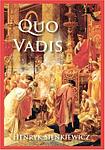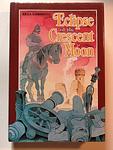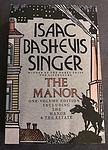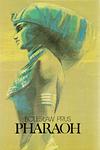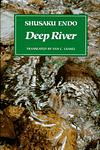The Greatest Polish, Hungarian, Japanese "Historical fiction" Books of All Time
Click to learn how this list is calculated.
This list represents a comprehensive and trusted collection of the greatest books. Developed through a specialized algorithm, it brings together 305 'best of' book lists to form a definitive guide to the world's most acclaimed books. For those interested in how these books are chosen, additional details can be found on the rankings page.
Genres
Historical fiction is a genre of literature that combines fictional stories with real historical events, settings, and characters. These books often take place in a specific time period and are based on research and factual information, but also include imaginative elements to create a compelling narrative. Historical fiction allows readers to experience the past in a unique and engaging way, while also providing insight into the social, cultural, and political issues of the time.
Countries
Date Range
Reading Statistics
Click the button below to see how many of these books you've read!
Download
If you're interested in downloading this list as a CSV file for use in a spreadsheet application, you can easily do so by clicking the button below. Please note that to ensure a manageable file size and faster download, the CSV will include details for only the first 500 books.
Download-
1. Quo Vadis by Henryk Sienkiewicz
Set in ancient Rome during the reign of Emperor Nero, "Quo Vadis" follows the love story of a young Christian woman Lygia and a Roman patrician, Marcus Vinicius. As their relationship blossoms, they must navigate the dangerous political climate of the time, marked by Nero's tyranny and the growing influence of Christianity. The novel provides a vivid depiction of the clash between pagan Rome and the early Christian church, culminating in the Great Fire of Rome and subsequent persecution of Christians.
The 474th Greatest Book of All Time -
2. The Temple of the Golden Pavilion by Yukio Mishima
This novel follows the life of a young man named Mizoguchi, who becomes an acolyte at a famous Zen temple in Kyoto. Mizoguchi is afflicted with a stutter and a severe inferiority complex, which leads him to develop a destructive obsession with the temple's beauty. As he struggles with his personal demons, his fixation escalates into a desire to destroy the temple. The book is a profound exploration of beauty, obsession, and the destructive nature of ideals.
The 619th Greatest Book of All Time -
3. Fateless or Fatelessness by Imre Kertész
"Fateless" is a harrowing account of a Hungarian Jewish boy's experiences in Nazi concentration camps during World War II. The protagonist is sent to Auschwitz, then Buchenwald, and finally to a factory in Zeitz, enduring brutal conditions and witnessing unimaginable horrors. Despite his experiences, he maintains a detached, almost indifferent perspective, focusing on the mundane aspects of life in the camps, which further highlights the absurdity and horror of the situation. The novel explores themes of identity, survival, and the arbitrary nature of fate.
The 688th Greatest Book of All Time -
4. Embers by Sandor Marai
"Embers" is a novel about two old friends who reunite after being apart for 41 years. The story takes place in a secluded castle in the Carpathian Mountains, where the two men confront each other about a long-kept secret that has kept them apart. The narrative delves into themes of friendship, love, loyalty, and betrayal, while exploring the intricate dynamics of human relationships. The novel is a poignant examination of the nature of time and memory, and the ways in which they can shape and define our lives.
The 731st Greatest Book of All Time -
5. The Sea of Fertility by Yukio Mishima
"The Sea of Fertility" is a four-part epic that follows the life of Shigekuni Honda, a man who believes in reincarnation. The series spans several decades, beginning in the early 20th century and ending in the 1970s, and explores Japanese history, culture, and spirituality. As Honda encounters individuals he believes to be the reincarnations of his childhood friend, he grapples with questions of identity, mortality, and the nature of the soul.
The 943rd Greatest Book of All Time -
6. The Notebook: The Proof ; The Third Lie : Three Novels by Agota Kristof
"The Notebook: The Proof ; The Third Lie : Three Novels" is a trilogy of novels that follow the lives of twin brothers, living through the harsh realities of war, separation, and betrayal. The first novel, "The Notebook," tells the story of their survival as children in a rural town at the end of World War II. The second book, "The Proof," continues their story into adulthood, exploring the effects of their traumatic childhood. The final book, "The Third Lie," delves into the complexities of their relationship and the secrets they kept from one another. The trilogy is a poignant exploration of identity, love, and the enduring bond of brotherhood.
The 1301st Greatest Book of All Time -
7. Journey by Moonlight by Antal Szerb
"Journey by Moonlight" tells the story of a newlywed Hungarian couple, Mihály and Erzsi, who honeymoon in Italy. Mihály, however, is haunted by his past and becomes increasingly obsessed with his adolescent years, his old friends, and a mysterious brother and sister. This results in him abandoning Erzsi in order to embark on a strange and dark journey of self-discovery. The novel explores themes of nostalgia, love, and the struggle between personal desires and societal expectations.
The 1354th Greatest Book of All Time -
8. The Makioka Sisters by Junichiro Tanizaki
"The Makioka Sisters" is a novel set in pre-World War II Japan, following the lives of four sisters from a once-wealthy Osaka family. The story focuses on their struggles to maintain their traditional lifestyle and status in a rapidly changing society. The two elder sisters are concerned with finding a suitable husband for the third sister, while the youngest sister, more modern and independent, resists the constraints of her family's expectations. The book provides a detailed and nuanced exploration of the clash between tradition and modernity in Japanese society.
The 1362nd Greatest Book of All Time -
9. The Painted Bird by Jerzy Kosinski
"The Painted Bird" is a dark and harrowing novel set in Eastern Europe during World War II. The story follows a young, unnamed boy of unknown ethnicity who is sent by his parents to live in a remote village for safety. However, he is instead subjected to brutal violence, abuse, and superstition by the superstitious peasants. The book explores themes of survival, human cruelty, and the loss of innocence in the face of war and hatred.
The 1379th Greatest Book of All Time -
10. The Twilight Years by Sawako Ariyoshi
"The Twilight Years" is a poignant story revolving around the life of a middle-aged woman who is burdened with the responsibility of taking care of her ageing and ailing father-in-law while trying to balance her work and personal life. The novel explores the themes of old age, family responsibilities, societal expectations, and the struggles of women in a patriarchal society. It offers a critical examination of the social, cultural, and personal issues related to aging and care-giving in post-war Japan.
The 1491st Greatest Book of All Time -
11. Eclipse of the Crescent Moon by Géza Gárdonyi
"Eclipse of the Crescent Moon" is a historical novel set in the 16th century, during the time of the Ottoman Empire's siege on the Hungarian fortress of Eger. The story follows a brave young boy named Gergely, who grows up to be a heroic soldier defending his homeland. The tale is filled with romance, adventure, and provides a detailed depiction of medieval life, warfare, and the heroic resistance of the Hungarian people against the invading Ottoman forces.
The 1561st Greatest Book of All Time -
12. The Magician of Lublin by Isaac Bashevis Singer
This novel tells the story of Yasha Mazur, a talented and renowned 19th-century Jewish magician living in Poland. Yasha is a complex character, torn between his own desires and the expectations of his religious community. He leads a double life, juggling his career, his marriage, and his multiple affairs. As he grapples with his conflicting identities, Yasha is forced to confront his own moral failings and the consequences of his actions. His journey is one of self-discovery and redemption, offering a nuanced exploration of faith, love, and the human condition.
The 1720th Greatest Book of All Time -
13. The Manuscript Found in Saragossa by Jan Potocki
"The Manuscript Found in Saragossa" is a complex, multi-layered narrative that revolves around a young officer who discovers an ancient manuscript during the Napoleonic Wars. The manuscript contains a series of interwoven stories that span across time and space, featuring a range of characters including gypsies, bandits, and noblemen. These tales explore themes of philosophy, morality, and the supernatural, all while offering a fascinating glimpse into 18th-century Spanish culture.
The 2126th Greatest Book of All Time -
14. Black Rain by Masuji Ibuse
The novel is a poignant and detailed account of the aftermath of the atomic bombing of Hiroshima, as experienced by a Japanese family. Through the diary entries of a survivor and the narrative of the days that follow, the book explores the devastating impact of the bomb on the city's inhabitants, their struggle with radiation sickness, and the societal stigma they face. It delves into the physical and psychological trauma inflicted by the event, painting a somber picture of the human cost of war and the long-lasting effects of nuclear weapons on both individuals and communities.
The 2134th Greatest Book of All Time -
15. Satan In Goray by Isaac Bashevis Singer
Set in the 17th century, the novel explores the impact of false messianic fervor on the Jewish community of Goray, a small Polish town. After the devastating Chmielnicki massacres, the traumatized survivors find themselves drawn to the charismatic but ultimately destructive figure of Sabbatai Zevi, who claims to be the long-awaited Messiah. As the community becomes increasingly divided between believers and skeptics, the narrative delves into themes of faith, madness, and the desperate need for redemption, painting a vivid picture of a society on the brink of collapse under the weight of its own expectations and desires.
The 2279th Greatest Book of All Time -
16. Celestial Harmonies by Peter Esterhazy
"Celestial Harmonies" is a historical novel that tells the story of the aristocratic Esterházy family, tracing their lineage from the late Middle Ages to the present day. The narrative is divided into two parts, with the first part featuring a series of vignettes about the family's ancestors, while the second part focuses on the experiences of the narrator's father under the Communist regime in Hungary. The novel is characterized by its intricate structure, complex themes, and lush, poetic language, offering a rich exploration of Hungarian history, family dynamics, and the human condition.
The 2380th Greatest Book of All Time -
17. The Manor by Isaac Bashevis Singer
"The Manor" depicts the complex interplay between Jews and Polish nobility in 19th century Poland. The narrative focuses on the lives of two Jewish families, the Kalinowskis and the Dembowskis, who are tied together by marriage. As they navigate the political and social changes of the time, the characters grapple with issues of faith, tradition, assimilation and the struggle for survival. The book provides a vivid portrayal of Jewish life in Poland during a period of significant change and upheaval.
The 2454th Greatest Book of All Time -
18. Ashes and Diamonds by Jerzy Andrzejewski
Set at the end of World War II, the book explores the chaotic and morally complex time in Poland as the country transitions from war to peace. The narrative focuses on a young Home Army soldier tasked with assassinating a communist leader. As he grapples with his mission, he falls in love, further complicating his loyalties and convictions. The story provides a deep examination of the personal and political turmoil experienced during this historical period.
The 2454th Greatest Book of All Time -
19. Pharaoh by Bolesław Prus
"Pharaoh" is a historical novel set in ancient Egypt, during the reign of Pharaoh Ramses XIII. The story is a complex and compelling tale of court intrigue, power struggles, and the inevitable clash between church and state. The young Pharaoh, Ramses XIII, is pitted against the powerful and entrenched priesthood and the corrupt and decaying Egyptian nobility. The novel explores themes of power, corruption, and the human condition, while providing a detailed and accurate portrayal of ancient Egyptian culture and society.
The 2454th Greatest Book of All Time -
20. The Manor, The Estate, The Family Moskat by Isaac Bashevis Singer
The book is a sweeping saga that explores the multigenerational story of a Jewish family living in Poland from the late 19th century through the eve of World War II. It delves into the lives, loves, and losses of the family members as they navigate the changing social and political landscape. The narrative captures the tension between tradition and modernity, the struggle for survival amidst anti-Semitism, and the impact of historical events on personal identities and destinies. Through vivid characterizations and rich detail, the novel paints a portrait of a community and a way of life on the brink of profound change.
The 2646th Greatest Book of All Time -
21. Ashes by Stefan Zeromski
This novel is a poignant exploration of the Polish struggle for independence in the late 19th and early 20th centuries, focusing on the life and experiences of its protagonist, a Polish aristocrat. Set against the backdrop of the partitioned Poland, the narrative delves into themes of love, loyalty, and the quest for national identity. The protagonist's journey is marked by personal loss and the harsh realities of a country under foreign domination, reflecting the broader socio-political turmoil of the era. Through its vivid portrayal of historical events and emotional depth, the novel offers a compelling insight into the resilience of the human spirit and the complex tapestry of Polish history.
The 2850th Greatest Book of All Time -
22. The Peasants by Władysław Reymont
The book is a monumental narrative that delves into the lives, traditions, and struggles of the rural population in Poland at the turn of the 20th century. Through vivid and detailed storytelling, it portrays the seasonal rhythms that dictate the peasants' work and celebrations, their relationship with nature and the land, and the social dynamics within their community. The narrative not only offers a richly textured depiction of peasant life but also critically examines the impact of modernity and social change on traditional ways of life. Through its intricate character studies and the depiction of the universal themes of love, jealousy, ambition, and conflict, the novel presents a comprehensive and empathetic portrayal of the human condition within a specific cultural and historical context.
The 2850th Greatest Book of All Time -
23. The Beautiful Mrs. Seidenman by Andrzej Szczypiorski
Set in Nazi-occupied Warsaw, the novel tells the story of Mrs. Seidenman, a blonde, blue-eyed Jewish widow who is arrested by the Gestapo. The narrative revolves around the eclectic group of characters in her life, including a young man who is in love with her and a lawyer who is determined to save her. The book provides a vivid and poignant depiction of life under Nazi rule, exploring themes of survival, resistance, and the resilience of the human spirit.
The 3226th Greatest Book of All Time -
24. The Waiting Years by Fumiko Enchi
The novel is a poignant exploration of the life of a Japanese woman in the late 19th and early 20th centuries, who endures the pain and humiliation of serving her husband's needs by finding him concubines. As she navigates the complexities of her role within a rigidly patriarchal society, she faces the emotional turmoil of sacrificing her own happiness for the sake of family duty and social expectations. The narrative delves into themes of female subjugation, the intricacies of marital relationships, and the silent resilience of women, offering a powerful critique of the era's gender dynamics and the personal costs of adhering to tradition.
The 3469th Greatest Book of All Time -
25. Deep River by Shūsaku Endō
"Deep River" is a profound exploration of faith, suffering, and redemption, told through the intertwined narratives of four Japanese survivors of World War II. Each character carries their own personal trauma and guilt, leading them on separate spiritual journeys that converge at India's holy Ganges River. As they grapple with their pasts and seek forgiveness and meaning in their lives, the novel delves into themes of cultural clash, religious conflict, and the human capacity for love and understanding amidst pain.
The 4061st Greatest Book of All Time
Reading Statistics
Click the button below to see how many of these books you've read!
Download
If you're interested in downloading this list as a CSV file for use in a spreadsheet application, you can easily do so by clicking the button below. Please note that to ensure a manageable file size and faster download, the CSV will include details for only the first 500 books.
Download